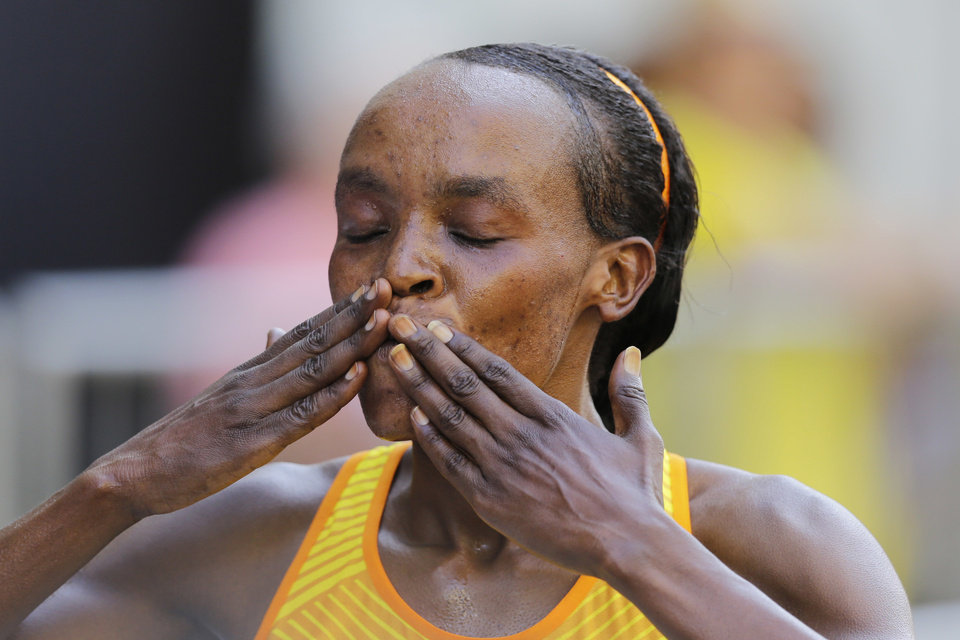
Kenya’s Jemima Jelagat Sumgong blows a kiss after crossing the finish line and win the Sao Silvestre women’s race in Sao Paulo, Brazil, Saturday, Dec. 31, 2016. The 15-kilometer race is held annually on New Year’s Eve. AP
SAO PAULO — Kenya’s Jemima Sumgong won another title in Brazil this year, setting a record for the St. Silvester road race following her gold in the marathon at the Rio de Janeiro Olympics.
Sumgong, who also won the 2016 London Marathon, clocked 48 minutes, 35 seconds in the 15-kilometer (9.3-mile) New Year’s Eve event, finishing 40 seconds ahead of fellow Kenyan, Flomena Cheyech Daniel. The previous record was 48:48, set in 2011.
The men’s race was tighter, with three runners finishing within seven seconds of one another. Ethiopian Leul Aleme won with a time of 44:53. He was followed by his compatriot Dawit Admasu, with Kenya’s Stephen Kosgei finishing third.
Sumgong said she didn’t run with the record in mind, noting that the heat and humidity made it an especially difficult race for her, according to a statement distributed by race organizers. With her medal in Rio and the St. Silvester record, Sumgong said Brazil was “in my heart.”
The race, named after the Roman Catholic saint whose feast day is celebrated Dec. 31, winds through the historic center of Sao Paulo and is among the region’s top road races.
Held every year since 1925, it used to be run at night, so the winner could cross the finish line around midnight to the blast of fireworks.
Along with elite athletes, the race draws revelers and amateur runners. They came in droves this year, many in groups of friends, wearing everything from Spider-Man costumes and feathered headdresses to tutus and masquerade masks.
“People make it a party, they barbeque,” said Joao Luis Macedo, a lawyer who has participated several times, referring to supporters along the route. “We go through poor neighborhoods, we go through rich neighborhoods. It’s very democratic.”

